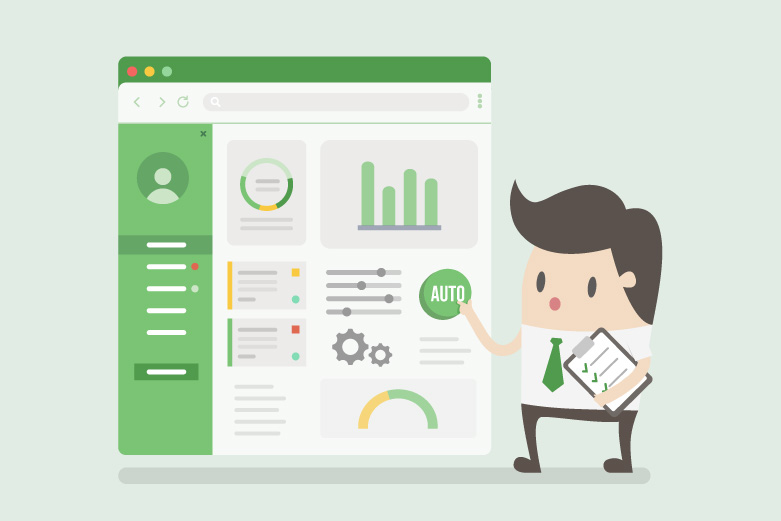
7 CRM Automation Tools to Streamline Your Operations
Ever wished you could boost productivity without clocking in extra hours? That’s the magic of customer relationship management systems.
These powerful systems can transform how you manage customer relationships by automating repetitive tasks and freeing up time for you and your team to focus on what truly matters: growing your business. Let’s take a closer look at seven CRM automation tools that can propel your business forward.
Benefits of Automation in CRM
CRM automation is all about using technology to manage customer interactions and streamline processes with precision. It’s the application of various software tools that organise, automate, and synchronise sales, marketing, customer service, and technical support.
With the global CRM market projected to reach $96.39 billion by 2027, it’s clear that leveraging these tools isn’t just a trend but a necessity for staying competitive.
- Boosted Efficiency: Automation takes over routine tasks such as data entry and follow-up emails, allowing your team to focus on strategic initiatives.
- Enhanced Engagement: Automated systems can provide timely and personalised communication, enhancing the overall customer experience.
- Error Reduction: By automating processes, you minimise the risks of manual errors, ensuring data accuracy and reliability.
Top CRM Automation Tools to Boost Your Business
1. Salesforce
Salesforce offers a comprehensive CRM solution with powerful automation capabilities through its Workflow Rules and Process Builder. These features allow businesses to automate a wide array of tasks, from simple emails to complex business processes.
Additionally, Salesforce’s AI-driven insights provide predictive analytics that can help anticipate customer needs and drive smarter business decisions.
- Best For: Large enterprises needing a customizable, comprehensive solution.
- Highlight: One of the pioneers in CRM systems, Salesforce offers robust tools tailored to sophisticated business needs.
2. HubSpot
HubSpot’s CRM is known for its seamless marketing, sales, and service automation tools. Its platform is designed to integrate with various services, providing a holistic view of customer interactions. Automation features include automated email sequences, task assignments, and follow-up reminders, all designed to nurture leads throughout the customer journey.
- Best For: Small to medium businesses focusing on inbound marketing.
- Highlight: Known for its user-friendly interface and an extensive suite of integrations.
3. Zoho CRM
Zoho CRM offers advanced automation features like sales forecasting, lead management, and an AI-powered conversational assistant named Zia. These components work together to streamline sales processes, ensuring that your team focuses on closing deals rather than administrative tasks.
- Best For: Businesses seeking a budget-friendly and versatile CRM solution.
- Highlight: Offers a solid balance between functionality and affordability with extensive customisation options.
4. ActiveCampaign
ActiveCampaign excels in providing automation for email marketing, making it easy to create complex customer journeys with personalised email sequences. The CRM integration allows businesses to automate everything from simple follow-ups to sophisticated nurture campaigns, ensuring no potential lead is ignored.
- Best For: Businesses focused on customer experience and personalised email outreach.
- Highlight: Its robust automation workflows allow tailored customer journeys.
5. Pipedrive
Pipedrive’s CRM system emphasises a visual pipeline management approach that helps sales teams prioritise leads and tasks with minimal effort. Automation features include activity reminders and goal tracking, ensuring that sales representatives stay focused on what matters most.
- Best For: Sales teams looking for straightforward pipeline management.
- Highlight: Offers intuitive interfaces that help sales teams track leads and focus efforts efficiently.
6. Freshsales
Freshsales provides powerful automation through AI-powered lead scoring and behaviour tracking capabilities. These features enable businesses to identify high-value leads quickly and track interactions across various touchpoints to tailor sales strategies effectively.
- Best For: Growing businesses focusing on customer acquisition.
- Highlight: Integrates seamlessly with other Freshworks products for a holistic approach.
7. Monday.com
While primarily known as a project management tool, Monday.com also offers CRM capabilities with automation features designed for visual workflow management. Users can automate project-oriented tasks, ensuring smooth customer interactions and process execution.
- Best For: Teams that require visual management for project and customer processes.
- Highlight: Known for its flexibility and ease of use, making it easier for non-technical users to adopt.
What’s the Best CRM Automation Tool of 2025?
As of 2025, the best CRM tool recommended by multiple sources, including PCMag and Zapier, is Zoho CRM.
It is praised for its comprehensive features, affordability, and strong customisation capabilities, making it suitable for both small businesses and large enterprises. Zoho CRM offers advanced automation, AI-driven insights through its Zia assistant, and seamless integrations with a wide range of applications.
Factors to Consider in Choosing a CRM Automation Tool
Scalability
A CRM tool needs to be scalable to accommodate your growing business. As your company expands, your CRM system should be capable of handling increased data volumes, more user accounts, and additional functionalities without compromising performance. Evaluate whether the tool can scale alongside your business and adapt to future needs.
Ease of Use
The usability of a CRM tool is critical because it directly affects how quickly and effectively your team can adopt and utilise the system. An intuitive interface, straightforward navigation, and minimal learning curve are important aspects that can enhance user adoption and productivity.
Budget
Cost is a significant factor when selecting a CRM automation tool. It’s essential to weigh the features and functionalities offered against the price to ensure you’re receiving the best value for your investment. Consider both initial costs and ongoing expenses, such as subscription fees, customisation charges, and support costs.
Integration
Integration capabilities are crucial because a CRM system should work seamlessly with your existing software and tools. Ensure the tool can integrate with essential platforms like content marketing services, e-commerce systems, customer support tools, and other applications you use. This will create a cohesive ecosystem, facilitating data consistency and enhancing cross-departmental collaboration.
Embracing CRM automation tools can be a game-changer for businesses looking to maximise efficiency and improve customer interactions. So, explore these options, align them with your goals, and experience the transformation firsthand. With the right CRM automation tool, your business is poised for success.


